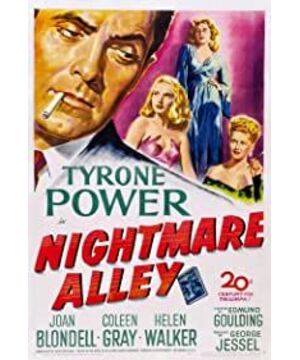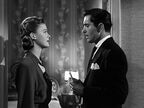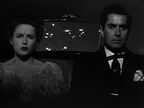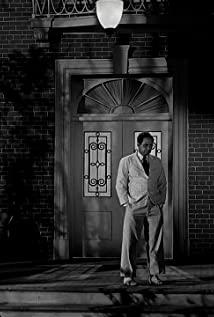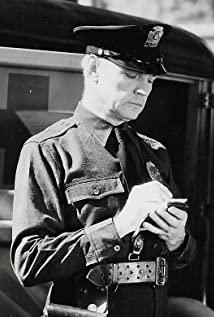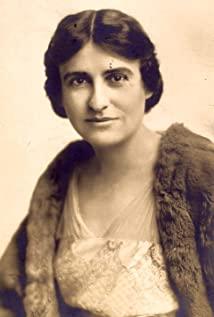Tyrone Bower's Stanton is wonderful, handsome in appearance, and bottomless in his heart. The psychiatrist Lilith is a standard femme fatale, hateful and vicious even far beyond the deceitful Stanton.
Although it is a film from 1947, the script is very smooth and smooth, with a strong sense of fate, and at the same time, it has a delicate portrayal of human nature. Magicians are a profession that is based on deception, and it is difficult to distinguish the true from the false. Stanton made a mistake by boldly crossing the border of entertainment that was already ambiguous in itself, trying to fulfill his unbridled ambitions. But there is a deadly shadow in his ruthlessness, and Pete's accidental death should be regarded as a knot in his heart that is difficult to overcome, so it is not surprising that he failed miserably in the confrontation with Lilith - the latter really has the psychological quality of a perfect criminal .
Molly is the brightest ideal character in the whole play. A character like Stanton who is based on a lie can only entrust the truth to Molly's "innocence in the mud". Although the ending that was forced to be revised to be equally bright is a bit weak, it is also a kind of comfort to the audience who sees the heartache. In the world of film noir, Stanton has this little love, this little guilt, and this little entanglement, so he can end up as a weak person. Only Lilith, who is completely black, can be proud and invincible all the way.
It is impossible to figure out what kind of character the director who wrote Stanton is. Stanton, who is drunk at the end of the film, repeats the tricks that Pitt once showed him. At this point, the audience inevitably has a slightly mocking sense of desolation. As an orphan, what did Stanton see in the world? ...Theoretically, every criminal will have a tomb where he will be buried. Stanton's must have been built since childhood, and it must be a lonely wasteland... very lonely, very lonely.
View more about Nightmare Alley reviews


